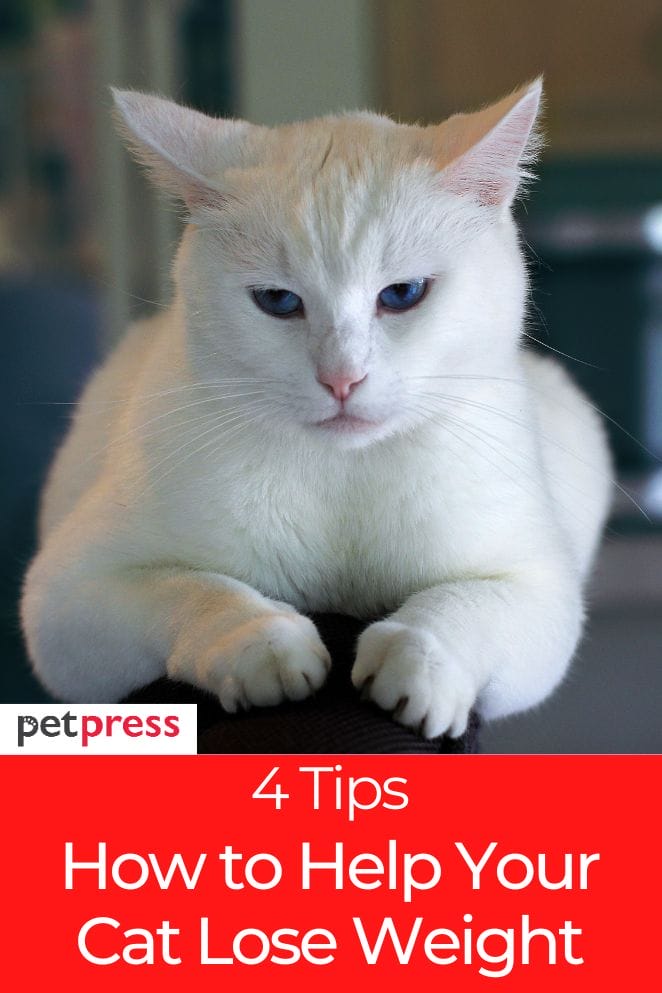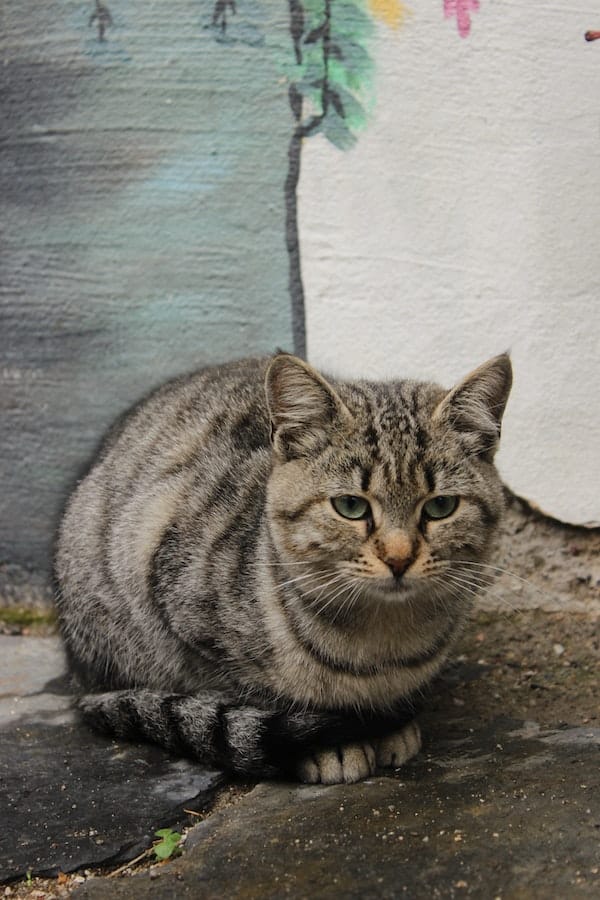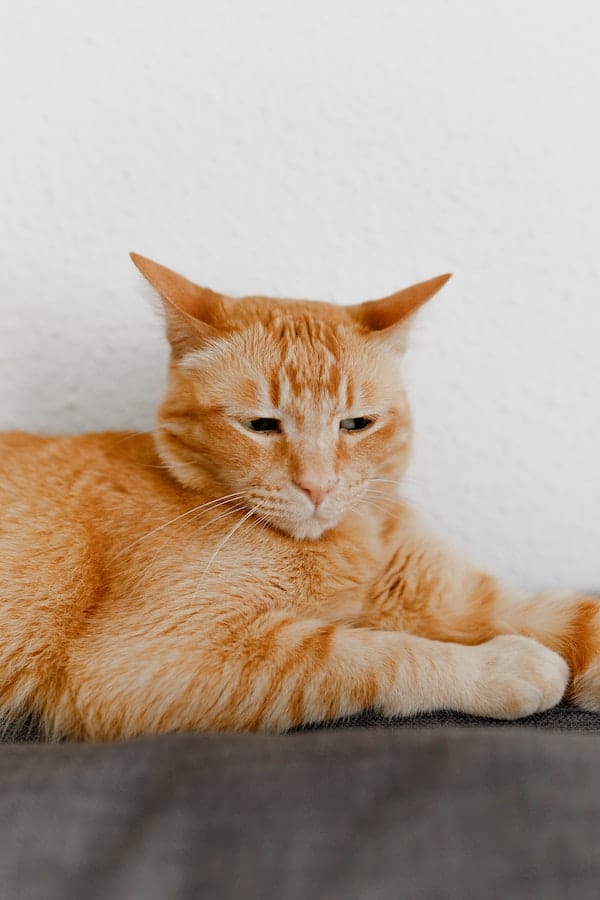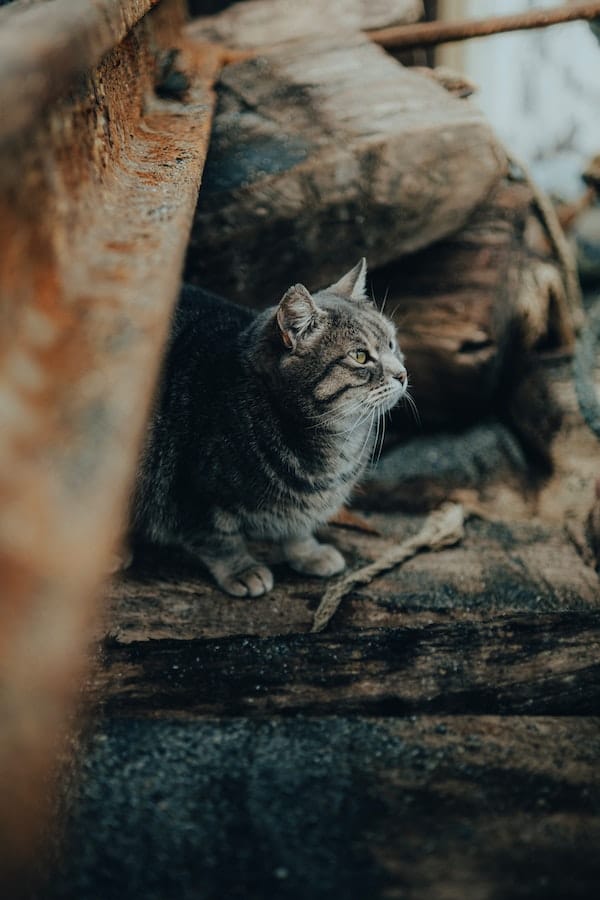
If your cat has been putting on the pounds, it may be time to help them slim down.
Weight gain in cats is commonly caused by overeating and a lack of exercise but can also be attributed to other underlying health issues such as diabetes or hypothyroidism.
In any case, there are steps that you can take to help your cat lose weight.
With a bit of commitment and motivation, you can have your furry friend back to a healthy size in no time.
Here are some tips for helping your cat slim down.
What are the common causes of weight gain in cats?

There are several common causes of weight gain in cats. The most reasons are:
Overeating
Overeating is the most common cause of weight gain in cats, and it’s usually due to an unbalanced diet or unhealthy snacking habits.
Make sure that your cat’s diet consists mostly of high-quality wet cat food, and limit treats or snacks as much as possible.
You should also measure your cat’s meals to ensure that they are eating the right amount of food.
Lack of exercise
The lack of exercise is another common cause of cat weight gain.
Cats tend to be sedentary creatures, so it’s important to provide them with plenty of playtime and opportunities for physical activity.
Invest in some interactive toys, or engage your cat in a game of fetch every once in a while.
You can also use feeding puzzles and slow-feeding dishes to encourage physical activity during mealtimes.
Underlying health issues
In some cases, weight gain in cats can be caused by underlying health issues, such as diabetes or hypothyroidism.
If your cat’s weight gain does not seem to be responding to dietary and exercise changes, it’s important to visit the vet for a full examination.
Your vet can help diagnose any potential health problems and provide guidance on how best to proceed with treatment.
What are the health risks associated with obesity in cats?

Obesity in cats can lead to various health complications, including:
- Reduced mobility
- Joint pain and arthritis
- Heart disease
- Diabetes
- Liver disease
- Increased risk of certain cancers
Being overweight can also affect your cat’s quality of life, making them less active and more prone to boredom. Therefore, it’s important to help your cat maintain a healthy weight to avoid any potential health risks.
What are some tips for helping my cat lose weight?

Fortunately, there are several steps you can take to help your cat slim down. Here are some tips for helping your cat lose weight:
Adjust their diet
It’s important to adjust your cat’s diet in order to ensure that they are eating the right amounts of high-quality food.
Make sure to provide them with a balanced and nutritious diet consisting mostly of wet cat food and limited treats or snacks.
You should also measure their meals carefully in order to avoid overfeeding.
Increase exercise
Physical activity is key when it comes to helping cats lose weight.
Encourage your cat to play by investing in interactive toys or engaging them in a game of fetch.
Feeding puzzles and slow-feeding dishes can also be used to increase their physical activity during mealtimes.
Additionally, you can also take your cat for regular walks on a leash to promote exercise and weight loss.
Visit the vet
If your cat’s weight gain does not seem to be responding to dietary and exercise changes, it’s important to visit the vet for a full examination.
Your vet can help diagnose any potential health problems and provide guidance on how best to proceed with treatment.
Creating a weight loss plan
Creating a weight loss plan for your cat is the best way to ensure that they are able to reach and maintain a healthy weight.
Start by consulting with your vet and asking for specific guidance on diet, exercise, and other lifestyle changes that can help support your cat’s efforts to lose weight.
You can also create a structured schedule of meals and activities that your cat will be expected to follow every day.
Additionally, make sure to track your cat’s progress in order to monitor their overall health and adjust the plan if necessary.
By following these tips, you can help your cat reach and maintain a healthy weight for a happier and healthier life.
Conclusion
Weight gain in cats is a common problem, but it’s important to take steps to ensure that your cat maintains a healthy weight.
Adjusting their diet and increasing exercise are key components of helping cats lose weight.
However, if your cat’s weight gain does not seem to be responding to lifestyle changes, you should visit the vet for a full examination.
Additionally, creating a weight loss plan with the help of your vet can ensure that your cat is able to reach and maintain a healthy weight.
With the right guidance and support, you can help your cat achieve their ideal weight for a happier and healthier life!
FAQ
The amount of time it takes for a cat to lose weight will vary depending on their age, health, and metabolism. Generally speaking, most cats should be able to reach their ideal weight within 6-12 months with the right diet, exercise plan, and veterinary guidance.
In general, treats should be limited for overweight cats since they are usually high in calories and can contribute to weight gain. However, treats can still be given sparingly as a reward for good behavior or following a meal. Low-calorie options such as freeze-dried liver or tuna flakes can also be used in moderation.
The amount of food that a cat should eat to lose weight will depend on their individual size and activity level. It’s important to consult with your vet for specific recommendations, as they can provide guidance on the best diet and portion sizes for your cat.


GIPHY App Key not set. Please check settings